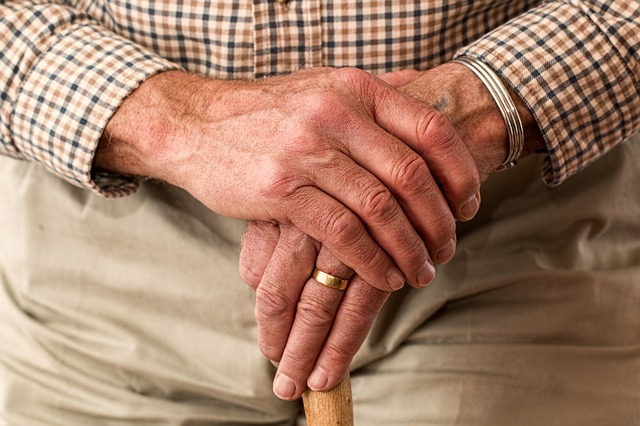
Falling over can happen to anyone, but for older people the risk is particularly high and the consequences potentially severe, including distress, pain, injury, loss of confidence, loss of independence and mortality.
Falls are a common and serious health issue for older people, with around a third of all people aged 65 and over falling each year, increasing to half of those aged 80 and over.
In around 5% of cases a fall leads to fracture and hospitalisation, which is costly for health services and the wider economy.
There are around 255,000 falls-related emergency hospital admissions in England among patients aged 65 and over each year, and it is estimated that fragility fractures cost the UK around £4.4 billion, of which 25% is for social care.
So preventing falls is therefore important for the health and wellbeing of older people and those that care for them, as well as the future of our health and social care services.
Fortunately, there are a whole host of things that can be done to help prevent falls and fractures.
One example is engaging in regular physical activity to develop and maintain strength and balance. However new research carried out by IPSOS Mori for the Centre for Ageing Better shows that more than 40 per cent of over 70s don’t realise how important good strength and balance is to reduce falls, and that people of all ages are confused about what activities help with improving their strength and balance.
So raising awareness about what individuals can do to reduce the risk of falling is important, but we must also ensure that appropriate and effective services are in place.
PHE’s menu of preventative interventions recommends setting up fracture liaison services to identify more people at risk of future fractures and falls, and offer bone strengthening medicines and referrals to services that can reduce the risk of repeat fractures from falls.
Importantly, these interventions also help to deliver key goals of healthy ageing, where older people are supported to remain mobile, continue to learn, develop and maintain relationships and contribute to society. However we know quality and coverage varies between different areas.
Supporting commissioning for prevention
A new consensus statement published by the National Falls Prevention Coordination Group (NFPCG) this week outlines ways to support and encourage effective and integrated commissioning of interventions to help prevent falls.
Commissioning for falls and fracture prevention is complex and involves working across the health, social care and housing sectors.
Interventions can be commissioned by local authorities and clinical commissioning groups, but services are also resourced via the private, voluntary or community sectors and patients may be under the care of different professional groups and referred from one service to another.
However, falls and fracture prevention can be supported at all stages of the commissioning cycle in order to help reduce demand by shifting the focus towards prevention, reduce variation in the quality, safety and outcomes of care, and improve efficiency.
The NFPCG is hosted by PHE and made up of organisations involved in the prevention of falls, care for falls-related injuries and the promotion of healthy ageing, who have all been involved in the development of the new consensus statement.
The group recommends that a collaborative and whole system approach to falls and fracture prevention and treatment should:
- Promote healthy ageing
- Reach more people through evidence-based case finding and risk assessment
- Demonstrate the commissioning of services that provide:
- an appropriate response attending people who have fallen
- risk assessment and timely, evidence-based, tailored interventions for those at high risk of falls
- evidence-based strength and balance programmes and opportunities for those at low to moderate risk of falls
- home hazard assessment and improvement programmes
- Ensure that local approaches to improve housing address falls prevention
- Demonstrate actions taken to reduce risk in high-risk health and residential care environments
- Provide fracture liaison services in line with clinical standards
- Provide evidence-based, collaborative care for falls-related serious injuries supported by clinical audit programmes
- Have a strategic lead and governance body with oversight and assurance of falls and fracture prevention activity
NFPCG members have also committed to a number of activities to support effective commissioning and provision, including increasing public and professional awareness, ensuring co-production of services with older people, their families and carers and supporting learning from best practice.
Falls and fractures are a serious and costly health issue, and this statement suggests a number of approaches to reduce that burden. I encourage any national and local organisations who want to get involved with this programme to support and enable healthy ageing through tackling falls and fractures to get in touch.
If you're interested in receiving more of PHE's blogs, please subscribe using 'sign up for updates' and get updates in your inbox.

1 comment
Comment by Dorothy Clarke posted on
I was looking for suitable simple exercises to be done daily that might help to maintain and improve balance.